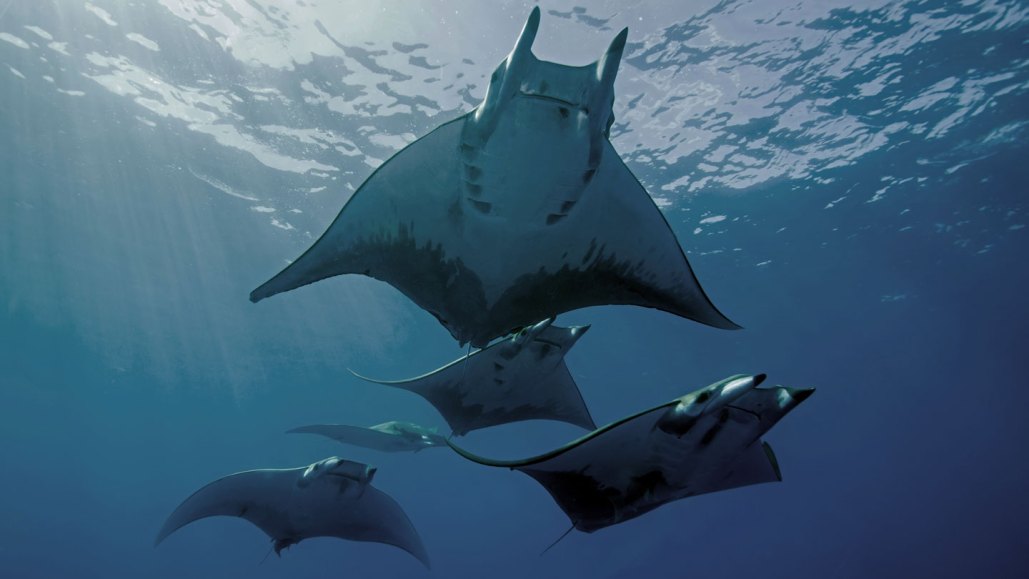New UN Report Provides Disturbing Findings on the Alarming Decline of Migratory Fish Species

Animals that migrate don't carry passports, though they frequently cross national borders. This makes preserving the species particularly challenging, as it requires a global effort.
Researchers in the inaugural 'State of the World’s Migratory Species' report, launched on February 12 by the United Nations Environment Programme, believe much work needs to be done.
The report comprehensively covers over 1,000 species included in the international Convention on the Conservation of Migratory Species of Wild Animals (CMS) covenant. Almost half of the CMS species are noticing a population decline. Fish are suffering the most from this, with around 97 percent, approximately 56 species, on the edge of extinction. Species such as the devil rays and the scalloped hammerheads are particularly vulnerable.
“The steady fall in fish species is keeping me up at night,” commented Kelly Malsch from UNEP’s World Conservation Monitoring Centre during a news conference on February 8.
Purposed as a guide for priorities at the forthcoming CMS COP14 meeting, the report explores potential strategies for protecting migratory species. CMS COP14, set to begin on February 12 in Samarkand, Uzbekistan, will draw environmental conservation leaders from around to world to discuss protection of various species; mammals, birds, reptiles, and amphibians among others. While fishes are in the most jeopardy, the report also flags that one in every five species governed by the CMS is close to extinction. Despite the concerning data, positive examples such as the resurgence of humpback whales exist, pointing towards potential avenues for other endangered species' protection.
Not only land mammals and birds, but also the very first global tally of more than 1,000 species shows fishes are struggling more than any other groups. Fish account for the largest proportion of critically endangered or at risk species. The report only includes the monarch butterfly within the insect category, however, its situation is complicated: although the species as a whole is not at risk, the migratory specimens are classified as endangered.
Looking at data from the International Union for Conservation of Nature’s Red List of Threatened Species, researchers from the U.N. show a drop of 90 percent in CMS-listed fish stocks since 1970. No other group of animals has witnessed a drop to this extent. Accidently caught fish, overfishing, and pollution are the main villains, as per the report.
Alongside the species already safeguarded by the treaty, the report also recognizes around 400 other species as vulnerable. This includes over 200 species of fish not covered by existing protection, the majority of which show declining populations.
The CMS treaty considers just a quarter of all migratory species, with 399 of the remaining 3,339 species identified as either threatened or nearing a threat. Fish come symptomatic as the most endangered
In relation to this, Richard Caddell, a marine and environment law and policy expert at Cardiff University in Wales, who was not involved with the report, emphasized that very few fish species get adequate protection. Just a handful, such as the species used for caviar, are more safeguarded than others, primarily because of their commercial value.
Preserving species in water across different countries is even more challenging than in land-based scenarios. As many parts of the ocean are yet to be explored, making conservation efforts harder. .
In addition, fish face another problem as they are not considered 'charismatic' animals, and consequently do not receive as much conservation funding or global recognition as species like gorillas and elephants. Caddell believes this report could assist in changing this perception.
The report presents methods aimed at protecting migratory fish species from pollution and accidental catches, such as using LED lights to keep certain species away from nets. By highlighting the plight of fish, CMS COP14 delegates may pay more attention to their conservation.
Caddell expressed that lack of action from countries regarding fish species may be caused by unawareness of the actual conservation status of these animals, further emphasizing the importance of the report.
More than 100 parties have signed and ratified the CMS since 1979. The United States is not one of those countries, but it has agreed to elements of the treaty focusing on marine mammals and sharks. But even for nations that have ratified the CMS, there’s no real legal penalties if they don’t follow the treaty. Instead, Caddell says reports like this new one remind those involved to do better.
“I think this report is a very, very welcome development,” Caddell says. “There’s an opportunity here to build a little bit of political momentum to try to think about fish in a different way. And to move away from that we’re just there to eat them.”




